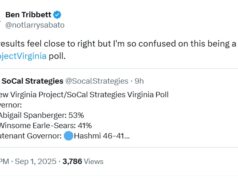
Although widely unpopular, the idea that Americans should pay MORE for energy to reduce overall usage is indeed an option that requires serious consideration by Federal, state, and local governments.
At present, the U.S. participates in one of the world’s most egregious market distortions by keeping the costs of energy down in the country. By looking at both government supports and what “policymakers are refusing to do,” a recent report by the International Monetary Fund (IMF) concluded that governments across the planet held energy costs down by $2 trillion in 2011. The U.S. was, of course, one of the worst offenders.
While increasing the costs of energy in the U.S. may be a bitter pill to swallow at first, it’s nothing that U.S. citizens cannot cope with and it may also have the indirect effect of making Americans more aware of climate change itself, not just how much energy their using or not using.
And herein lies the biggest challenge that any government, private or nonprofit group faces in raising climate change awareness: how do you make what appears to many Americans as an abstract “thing” that has no apparent, immediate, or direct impact on their lives into a tangible phenomenon that has real-world effects everyday in each of our lives? The pictures and stories of wild fires in the West, droughts in the Midwest, and chaotic weather in the Northeast haven’t had the desired effect on most Americans (however, there are a number of conflicting polls on this and related issues; no duh, right?!).
In an important way, the immensity of the problem of climate change has been a real issue and those who have attempted to raise awareness haven’t done the best of jobs conveying the simple, everyday tasks that Americans can undertake to reduce their “carbon footprint”. Or if the ideas have been proposed, they haven’t been pushed very hard on Americans reluctant to, for instance, car pool with their neighbors to work.
The pessimists say that it will take a catastrophe for Americans to finally come around to the idea that we will all have to make some sacrifices in our daily lives. However, catastrophes have already happened and still little, if any, positive change has occurred.
We shouldn’t throw in the towel, of course. Cultural shifts like the one many individuals are advocating to reduce America’s carbon footprint take time. But increasing the price of energy for Americans would certainly go a long way in expediting that process!














